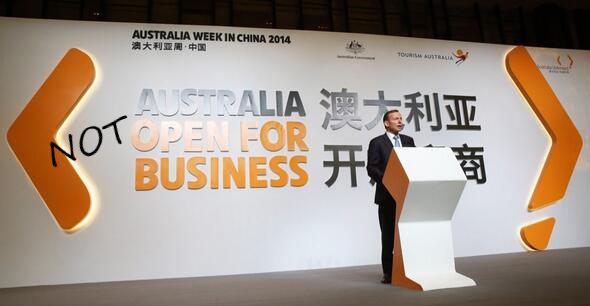
The uncertainty caused by the Renewable Energy Target (RET) is not only affecting billions of dollars in investment but now some big companies are thinking about closing their Australian offices altogether.
A leading US utility-scale solar company, Recurrent Energy, is cutting costs and closing its Australia office. They say if there is policy certainty in the country again, it may reopen but until such time, they will manage all Australian operations from the US.
They have also said that they have 1500MW’s or $3 billion worth in Australian renewable investments in the pipeline but it is only likely to go ahead if the RET in maintained.
Although they are the first to actually close their Australian doors, many international companies have warned they may do the same. Spain’s Acciona and US-based First Solar have both said earlier in the year that they would reconsider investment in Australia if the RET is diluted. Even our own utility-scale solar companies are doing more business overseas than they are doing on home ground.
Two of the world’s largest wind and solar companies in the world, Goldwind Australia and Yingli Green Energy put submissions in to the RET review panel saying how changes would impact their presence in Australia.
Goldwind already has around $400 million of wind projects developed or nearly completed in Australia and another $800 million in the pipeline. Tony Abbott said at a lunch in China that the amount of money invested in another country was a sign of trust – Goldwind used Mr Abbott’s own words against him signally that their trust in us in wavering.
Yingli have suggested that Australia in no longer a front runner but is now actually falling behind. “For many years Australia has claimed that it was in danger of leading the pack in its attempts to reduce GHGs (greenhouse gases),” Yingli wrote. “However, given the increasing commitments made by other countries (eg more than 70 countries around the world have put in place targets and policies to support the development of renewable energy technologies,) Australia is now a laggard in this area.”
This comes as the RET review panel has been heard asking for an extension of several weeks before handing in their report on the future of the RET. It is strongly thought that they are (at the very least) going to dilute the RET to the ‘real’ value of 20% of electricity demand. Such outcomes are probably not going to be supported in the Senate which means that uncertainty could remain in the Australian market for years.
If international companies move resources and money around depending on market activity, as has been suggested, Australia is becoming less and less attractive.
Tags: Australian renewable investments, Goldwind Australia, renewable energy technologies, RET review panel, Spain’s Acciona, US-based First Solar, utility-scale solar companies, Yingli Green EnergyComments are closed.
